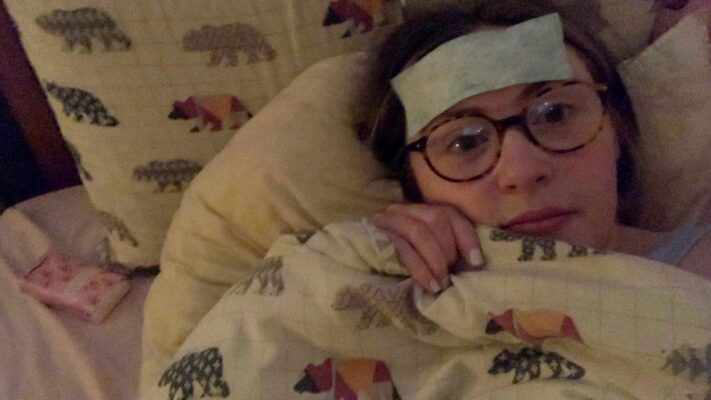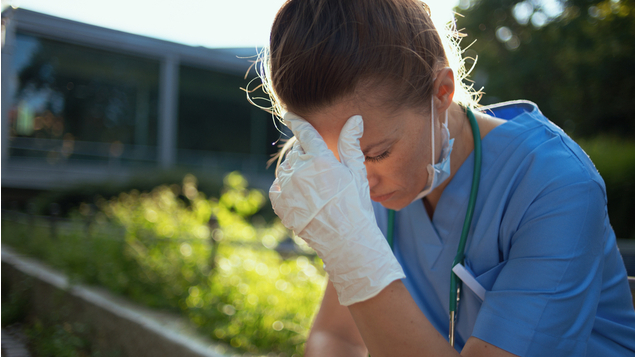
Zoe McNulty believes she caught Covid-19 while working in a pharmacy in March 2020
Zoe McNulty, 27, feels people have been left relying on internet support groups for help.
There are still no dedicated health services for those living with long Covid symptoms here.
But the health department has pledged to start services by the end of October.
Long Covid clinics were opened across England in November 2020.
Ms McNulty told BBC NI’s Spotlight programme: “You see people over in England going to long Covid clinics and they’re doing really well.
“No offence to the [Northern Ireland] government but they’ve been happy to leave me sitting here.
“If I had a long Covid clinic months ago, could I have been better by now? I am essentially just left in the dark, like, figure it out on your own.”
Rebecca Logan, a former fitness instructor and nurse, is an advocate for long Covid sufferers here.
She said the situation was “desperate and inexcusable”.
“Since this time last year, I have been trying to get answers about when we will get health service help,” she said.
Ms Logan said the situation was “absolutely appalling”.
“Large numbers of working-age people have been left with no support or guidance from the NHS, while they become more and more debilitated.”
The programme also features Pastor Mark McClurg who faced a life-threatening battle with Covid in March 2020 and still has long Covid.
He said: “My faith is what I am. It’s what’s carried me through from ICU to this moment in time.
“And the amount of people who have continually prayed for me, that’s just so humbling.”
The Department of Health (DoH) said it intends to have new services for the treatment and assessment of long Covid available in all health trust areas by the end of October.
However, the department admitted to Spotlight that it also has not yet collected the data required to assess what services are actually needed.
An estimated 20,000 people in Northern Ireland have some form of long Covid.
Ms McNulty suspects she caught Covid-19 while working in a pharmacy in March 2020.
She is no longer able to work or study, and had to end her three-year relationship with her Italian boyfriend.
“There is a fear that this could be forever. That this could be my life,” she said.
Ms Logan now uses a wheelchair and walking stick because she can’t walk far without being breathless.
“I hosted a meeting of people with long Covid the other night, and there were people so desperate and even crying,” she said.
“People in their 40s, young children, all ages. People grieving the life they had before long Covid hit them, it’s heart-breaking.”
In the UK, long Covid is broadly defined as a condition that develops during or after the initial Covid-19 infection; continues for more than 12 weeks; and its symptoms cannot be explained by an alternative diagnosis.
More than 200 symptoms have been linked to the illness, but some of the main symptoms are: extreme fatigue, breathlessness, brain fog (neurological and memory loss), heart problems and severe headaches.
 More than one-in-10 people in the UK who have had Covid-19 are self-reporting with long Covid symptoms, according to a recent survey by the Office of National Statistics (ONS).
More than one-in-10 people in the UK who have had Covid-19 are self-reporting with long Covid symptoms, according to a recent survey by the Office of National Statistics (ONS).
It is estimated that about £2.5m a year will be needed for long Covid support in Northern Ireland.
The Department of Health said there are difficulties collecting data on long Covid because of a changing picture in which some people recover but others become ill.
Information is now being gathered but it will be a number of months before there is enough to analyse, the department said.
* Spotlight’s ‘Living with Long Covid’ by reporter Stephen Dempster is on BBC One NI tonight, Tuesday, October 5, at 10.35 pm.
Tags:




